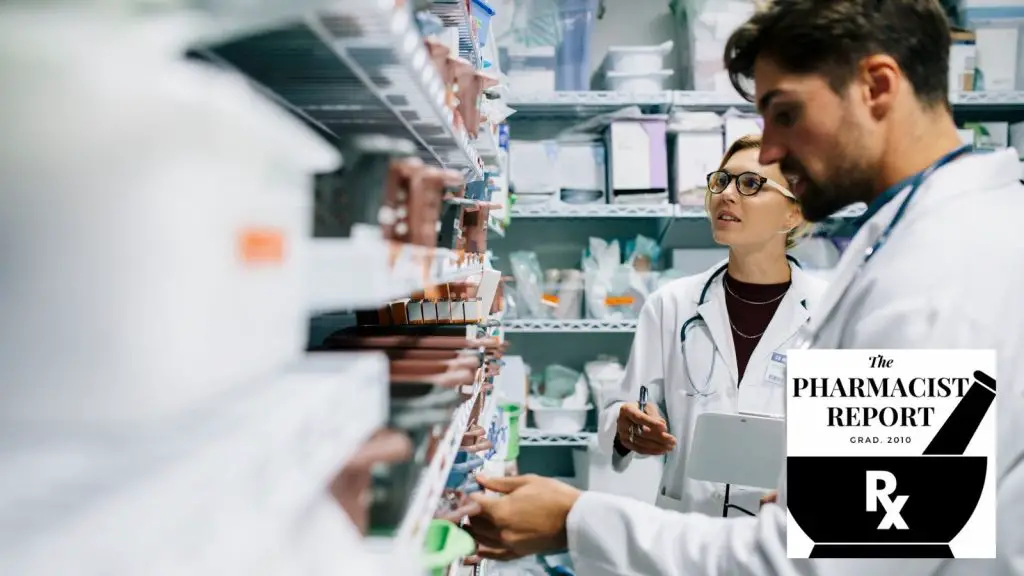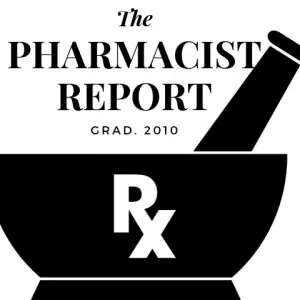Imagine a world without pharmacies, where people had limited access to life-saving drugs and medicines. The importance of pharmacies cannot be overstated, as they play a crucial role in providing healthcare to the community.
Pharmacy is a field that offers a range of career options, from research and drug development to connecting with patients and helping them manage their health. However, there are still many misconceptions and myths that exist about this field, which can dissuade students from considering it as a career option.
To address these issues, the Pharmacy is Right for Me website aims to provide accurate information about pharmacy careers and encourage people, especially students considering college and career options, to explore this unique and interesting career path.
The field of pharmacy is constantly evolving, with new technologies and techniques being developed every day. This article will explore the different paths available in pharmacy and help you discover which one might be right for you. By dispelling myths and highlighting the rewards and fulfillment that come with a career in pharmacy, we hope to inspire and motivate you to explore this exciting field.

Career Options
The Pharmacy is Right for Me website provides comprehensive information on various career options available in pharmacy, dispelling common misconceptions and myths, and inspiring individuals to explore the unique and fulfilling opportunities that the field has to offer.
Pharmacy careers offer tremendous career growth and opportunities for professionals with diverse interests and educational backgrounds. Pharmacy graduates can work in various settings, including retail pharmacies, hospitals, pharmaceutical companies, and research institutions. They can also choose from a range of career paths, such as clinical pharmacy, drug development, pharmacy informatics, and pharmaceutical marketing.
Pharmacy careers require a minimum of a Doctor of Pharmacy (PharmD) degree, which typically takes four years to complete. To gain admission to a PharmD program, students must complete two years of pre-pharmacy coursework, which includes courses in biology, chemistry, physics, mathematics, and humanities.
After completing their degree, pharmacy graduates must also pass the North American Pharmacist Licensure Exam (NAPLEX) and the Multistate Pharmacy Jurisprudence Exam (MPJE) to obtain a license to practice. Specialty certifications are also available for pharmacists who wish to specialize in areas such as oncology, pediatrics, and critical care.
With the right education and training, pharmacy graduates can explore a world of fulfilling and rewarding career opportunities.
Myths and Misconceptions
Misunderstandings surrounding careers in pharmacy can often lead to misconceptions and myths. One of the most common myths is that pharmacists only count pills and fill prescriptions. However, pharmacy careers offer a wide range of options beyond retail pharmacy, such as research, drug development, pharmacy informatics, and more.
Another misconception is that pharmacy is a dying field due to the rise of technology and automation. In reality, the demand for pharmacists is expected to grow in the coming years, particularly in areas such as patient care and medication management.
Breaking down these barriers and dispelling these myths is crucial to encouraging more individuals to consider pharmacy as a career option. By providing accurate information and showcasing the diverse range of opportunities within the field, individuals can gain a better understanding of the potential benefits and rewards of a career in pharmacy.
With the rise of telepharmacy and other advancements in the industry, the future of pharmacy is bright and full of potential for those interested in a fulfilling and dynamic career.
Rewards and Fulfillment
Attaining a sense of purpose and fulfillment in one’s career can be a challenging task, but pharmacy careers offer a multitude of opportunities for individuals to achieve this through the combination of scientific knowledge and patient care, making it a dynamic and rewarding field. Pharmacists play a crucial role in the healthcare industry as they are responsible for ensuring that patients receive the correct medication and dosage. This involves working closely with other healthcare professionals and patients to ensure safe and effective use of medication.
Pharmacy satisfaction is derived from the impact that pharmacists have on patients’ lives. By providing medication counseling, pharmacists can help patients understand their medication and how to take it correctly. This not only improves patient outcomes but also helps to build trust between the pharmacist and patient. In addition, pharmacy careers can provide a sense of career purpose as pharmacists have the opportunity to positively impact their community and make a difference in people’s lives. The table below highlights some of the rewards and fulfillment that can be derived from a career in pharmacy.
| Rewards and Fulfillment | Description |
|---|---|
| Helping patients | Pharmacy careers allow professionals to make a positive impact on patients’ lives by ensuring they receive the correct medication and dosage. |
| Career purpose | Pharmacists have the opportunity to positively impact their community and make a difference in people’s lives, providing them with a sense of purpose. |
| Professional growth | Pharmacy careers offer a multitude of opportunities for professional growth, including specialization in areas such as drug development, research, and pharmacy informatics. |
Summary and Conclusion
Pharmacy is a fascinating blend of multiple disciplines, including science, health care, direct patient care, technology, ethics, and business. Pharmacists are highly-skilled medication experts who play a crucial role in the healthcare industry. They are responsible for dispensing prescriptions, counseling patients on medication usage and side effects, communicating with physicians, directing patients toward over-the-counter medications, and advising on safe medicine use.
Pharmacists can specialize in a variety of areas, including academia, community, government, hospital, industry, military, research, and wholesale. Additionally, they can become board-certified in specialty areas such as ambulatory care, critical care pharmacy, nuclear pharmacy, nutrition support pharmacy, oncology pharmacy, pediatric pharmacy, pharmacotherapy, and psychiatric pharmacy.
Pharmacists work in hospitals, retail stores, nursing homes, assisted living facilities, universities, governmental facilities, mail services, and internet companies. They spend most of their workday on their feet, consulting with patients and physicians, and may need to work various shifts, including nights, weekends, and holidays.
To become a pharmacist, one must attend pharmacy school and earn a Pharm.D. degree, which typically takes four years to complete and requires at least two years of undergraduate college study. After graduation, many pharmacists choose to complete a postgraduate residency training program, which can last one or two years, depending on the specialization.
Pharmacists can expect an annual median salary of $128,570, and there are numerous career opportunities available, including management, research, teaching, and opening one’s own pharmacy. The demand for skilled pharmacists in hospitals and clinics is expected to grow, while employment in retail or drug store settings may decline slightly.
In conclusion, pharmacy is a challenging yet rewarding career that requires extensive education, attention to detail, and a passion for helping others. Pharmacists play a vital role in the healthcare industry and are highly respected medication experts. If you are interested in pursuing a career as a pharmacist, there are several specialty areas to consider, and there are numerous employment opportunities available in various settings.
Frequently Asked Questions
What are some common challenges pharmacists face in their daily work?
Pharmacists may experience workplace stress due to high workloads, long hours, and dealing with patient health issues. Patient communication can also be challenging, as pharmacists must communicate effectively and compassionately while also ensuring patient safety and confidentiality.
How do pharmacy careers differ from other healthcare professions?
While healthcare professions share common goals, pharmacy careers stand out due to the rigorous pharmacy education required. Additionally, pharmacists often earn higher salaries compared to other healthcare professionals, reflecting their unique role in managing medication therapy.
What skills are important for success in pharmacy careers?
Teamwork dynamics and continuous learning opportunities are crucial for success in pharmacy careers. Pharmacists work with a team of healthcare professionals to provide optimal patient care, while also staying up-to-date with new medications and technologies through ongoing education and training.
How has technology impacted the field of pharmacy?
It is ironic that despite the advancement in technology, telemedicine integration and robotic dispensing systems have only recently made significant impact on the pharmacy field. These innovations have improved efficiency and accuracy in medication dispensing and patient care.
Can pharmacy careers lead to opportunities for entrepreneurship or business ownership?
Pharmacy careers can offer opportunities for starting a business or entrepreneurship, but it requires financial planning and knowledge of pharmacy regulations. Understanding market demand and creating a unique service can lead to successful ventures.

